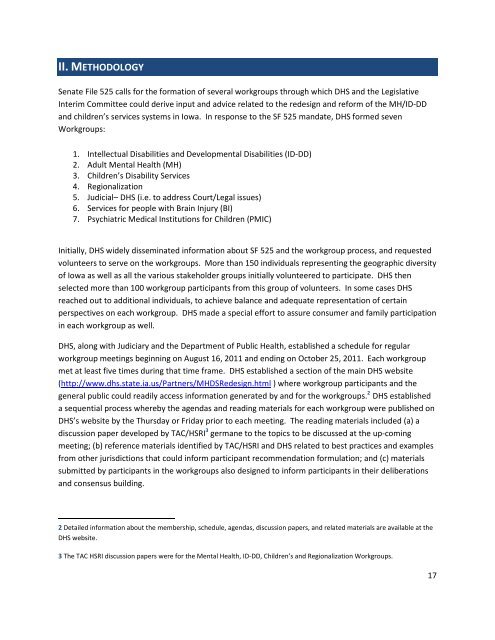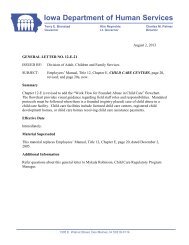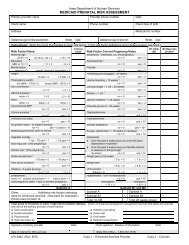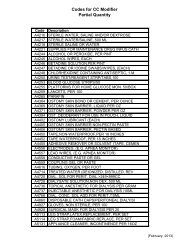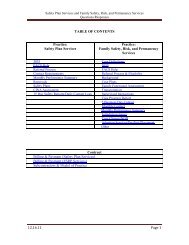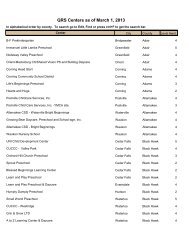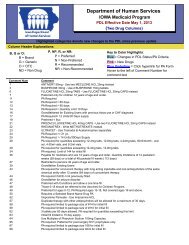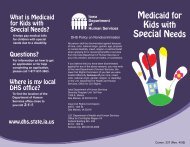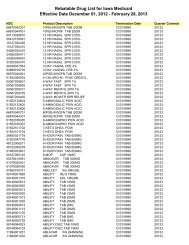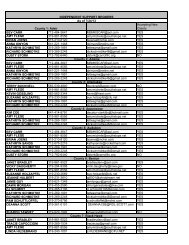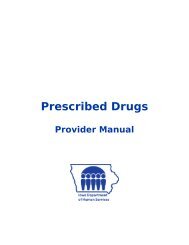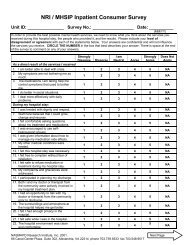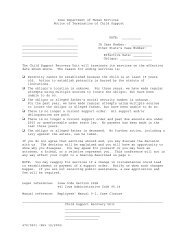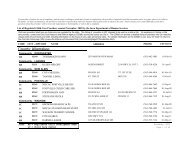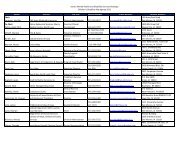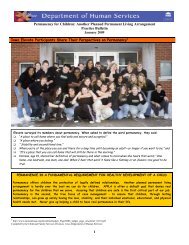Iowa Mental Health and Disability Services System Redesign Interim ...
Iowa Mental Health and Disability Services System Redesign Interim ...
Iowa Mental Health and Disability Services System Redesign Interim ...
- No tags were found...
You also want an ePaper? Increase the reach of your titles
YUMPU automatically turns print PDFs into web optimized ePapers that Google loves.
II. METHODOLOGY<br />
Senate File 525 calls for the formation of several workgroups through which DHS <strong>and</strong> the Legislative<br />
<strong>Interim</strong> Committee could derive input <strong>and</strong> advice related to the redesign <strong>and</strong> reform of the MH/ID-DD<br />
<strong>and</strong> children’s services systems in <strong>Iowa</strong>. In response to the SF 525 m<strong>and</strong>ate, DHS formed seven<br />
Workgroups:<br />
1. Intellectual Disabilities <strong>and</strong> Developmental Disabilities (ID-DD)<br />
2. Adult <strong>Mental</strong> <strong>Health</strong> (MH)<br />
3. Children’s <strong>Disability</strong> <strong>Services</strong><br />
4. Regionalization<br />
5. Judicial– DHS (i.e. to address Court/Legal issues)<br />
6. <strong>Services</strong> for people with Brain Injury (BI)<br />
7. Psychiatric Medical Institutions for Children (PMIC)<br />
Initially, DHS widely disseminated information about SF 525 <strong>and</strong> the workgroup process, <strong>and</strong> requested<br />
volunteers to serve on the workgroups. More than 150 individuals representing the geographic diversity<br />
of <strong>Iowa</strong> as well as all the various stakeholder groups initially volunteered to participate. DHS then<br />
selected more than 100 workgroup participants from this group of volunteers. In some cases DHS<br />
reached out to additional individuals, to achieve balance <strong>and</strong> adequate representation of certain<br />
perspectives on each workgroup. DHS made a special effort to assure consumer <strong>and</strong> family participation<br />
in each workgroup as well.<br />
DHS, along with Judiciary <strong>and</strong> the Department of Public <strong>Health</strong>, established a schedule for regular<br />
workgroup meetings beginning on August 16, 2011 <strong>and</strong> ending on October 25, 2011. Each workgroup<br />
met at least five times during that time frame. DHS established a section of the main DHS website<br />
(http://www.dhs.state.ia.us/Partners/MHDS<strong>Redesign</strong>.html ) where workgroup participants <strong>and</strong> the<br />
general public could readily access information generated by <strong>and</strong> for the workgroups. 2 DHS established<br />
a sequential process whereby the agendas <strong>and</strong> reading materials for each workgroup were published on<br />
DHS’s website by the Thursday or Friday prior to each meeting. The reading materials included (a) a<br />
discussion paper developed by TAC/HSRI 3 germane to the topics to be discussed at the up-coming<br />
meeting; (b) reference materials identified by TAC/HSRI <strong>and</strong> DHS related to best practices <strong>and</strong> examples<br />
from other jurisdictions that could inform participant recommendation formulation; <strong>and</strong> (c) materials<br />
submitted by participants in the workgroups also designed to inform participants in their deliberations<br />
<strong>and</strong> consensus building.<br />
2 Detailed information about the membership, schedule, agendas, discussion papers, <strong>and</strong> related materials are available at the<br />
DHS website.<br />
3 The TAC HSRI discussion papers were for the <strong>Mental</strong> <strong>Health</strong>, ID-DD, Children’s <strong>and</strong> Regionalization Workgroups.<br />
17


